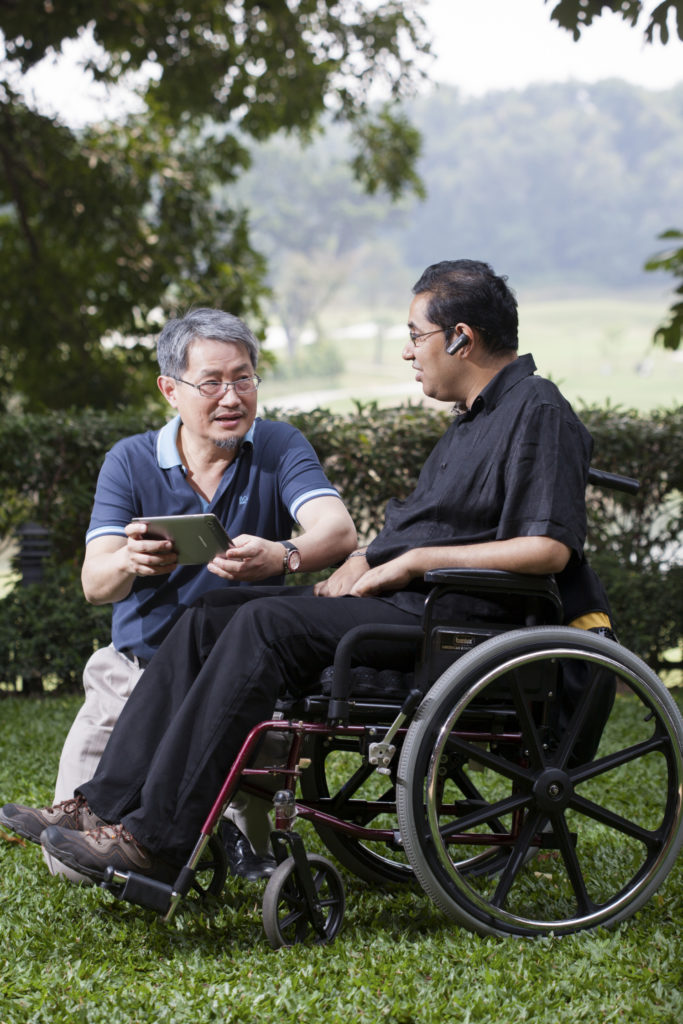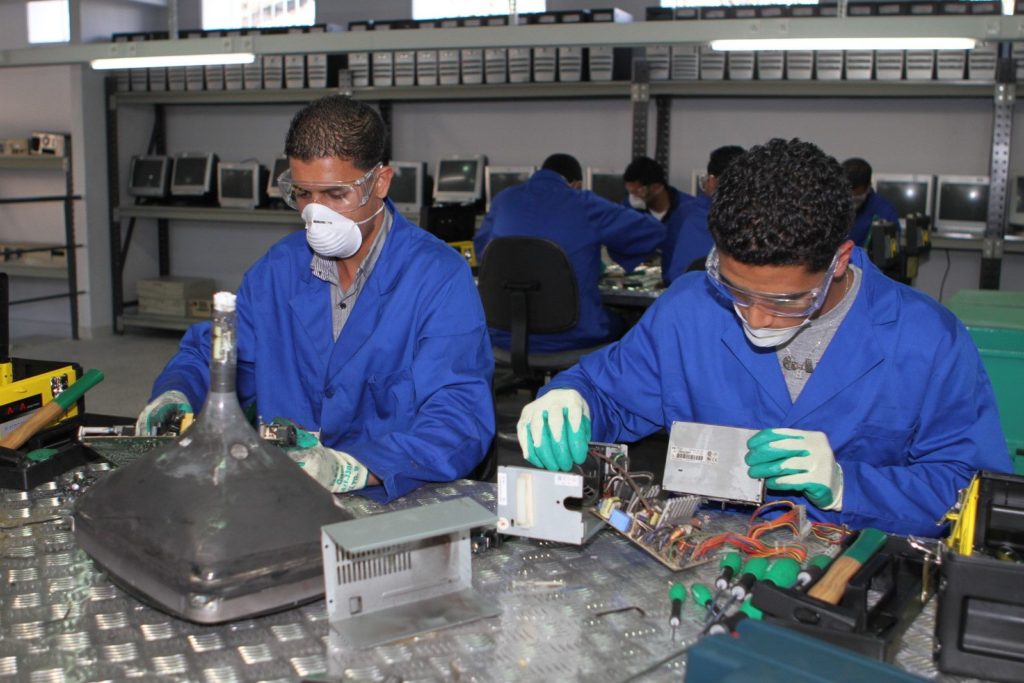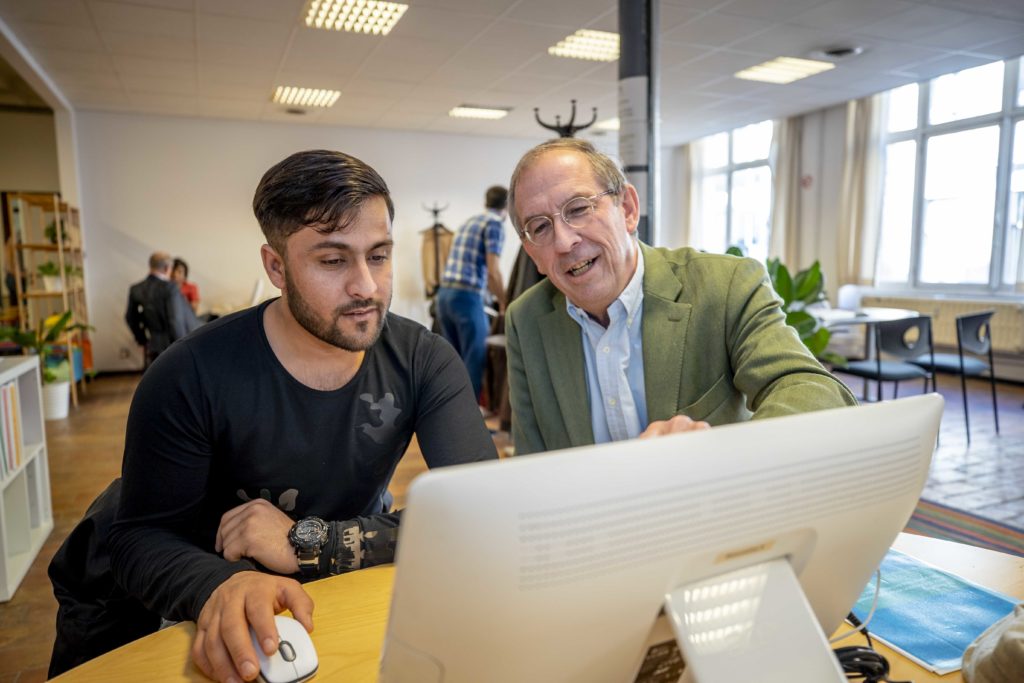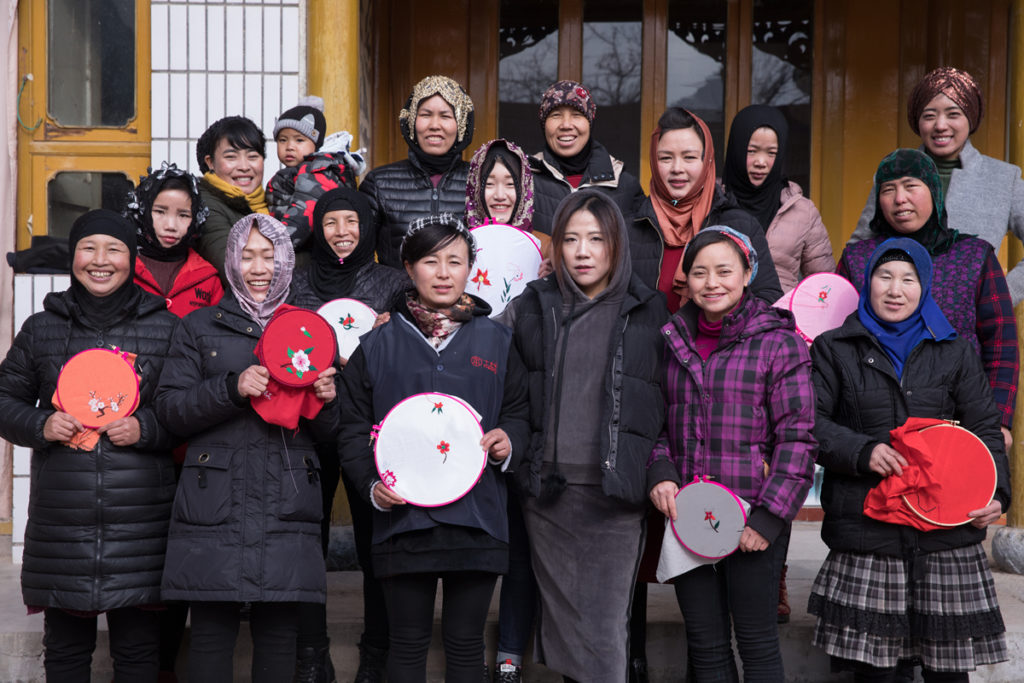Five projects fighting social exclusion through employment
Our status in society today is often defined by our profession. As a result, individuals without one regularly find themselves outcasted. Presented in the 7.7 Billion media operation, these 5 projects help marginalised people reinsert themselves in society through employment.
Technology as a means for inclusivity
Genashtim is a company focusing on e-learning programmes. Its specificity is not necessarily known by all its clients: around 60% of the employees are persons-with-disabilities (PWDs). The founder, Thomas Ng, facilitates the employment of usually marginalised people by making the most out of technological tools. The company has no physical offices. Most of its employees work from home, where they are not confronted with inadequate infrastructures. Applications such as WhatsApp or Skype are used to communicate with clients and among employees. This company is a solution for a majorly overlooked issue: according to the UN, 80 to 90% of PWDs in of working age developing countries are unemployed. Refugees also make up 30% fo the company’s employees. For more details, you can read the full article in The Straits Times (in English), L’Economiste and Le Soir (in French), or El Tiempo (in Spanish).

Killing three birds with one stone: employment, recycling and school equipment
1,7 million young adults in Morocco are currently not in education, employment or training. The Al Jisr NGO is helping them through the “Green Chip” project. Its aim is to teach its participants about hardware by dismantling old computers. The slightly damaged ones are repaired and donated to public schools while the others are disassembled and sent to be recycled. Through the year, the students receive technical training as well as support in their job search. To this end, they receive language, entrepreneurial and work ethics classes. The NGO will welcome 120 participants in Casablanca next year, double the current amount, and is looking for partners to open three new sites in other cities. To read the full article, visit The Daily Monitor and The Straits Times (both in English), La Regione (in Italian), El País, El Tiempo and La Nacion (all in Spanish), Almasry Alyoum (in Arabic) or L’Economiste (in French).

Finding a job with the help of a local
In Europe, young job seekers with an immigrant background often struggle to find employment. Despite the help offered by various public agencies, in the European Union, the unemployment rate for immigrants is double that of native-born citizens. Duo for a Job is a non-profit organisation operating in Belgium and in France which pairs a young unemployed person with a senior or retired worker. This intercultural and intergenerational coaching enables the mentee to have personalised support for their job search during 6 months. The assigned mentor can also share their professional network and reinforces their confidence in moments of doubt. The association can be proud of its results: more than 70% of its participants have found a traineeship or a job, and 9 mentors out of 10 start a new duo again when finishing one! Find out more about this project in The Nation, Yicai Global, and The Straits Times (in English), Le Figaro (in French) or La Regione (in Italian).

Modernisation through tradition
Ma Xiaoxiao comes from the village of Daban, in China. After moving to the capital city of the Gansu province, she returns 20 years later to create an embroidery factory. “The 13 Skilled Female Artisans” has two main goals. It preserves the region’s traditional embroidery while transforming the lives of its workers. Indeed, it is for most of them the first time they earn any money. The salary ensures their financial independence as well as a more hopeful future for their children. Despite the many difficulties encountered at the start of the project, Ma Xiaoxiao is inspiring more and more women to join her. She is part of a bigger movement: her generation is recreating opportunities in rural villages. This is a reversed urban migration: after learning in big cities, these young people return to their villages with entrepreneurial projects. To discover this type of embroidery, read the article in The Nation, The Straits Times and Yicai Global (all in English), L’Economiste and Le Soir (in French), or El Tiempo (in Spanish).

Faster profits, fairer prices: the app transforming Columbian agriculture
In 2015, a 15-year-old girl created an online platform enabling Columbian farmers to sell their products directly to consumers. Before, they would go through brokers who would buy the products at a very low price and would not share the profits. With Comproago, the farmers can negotiate the prices, payment and delivery methods. This allows farmers to be fairly compensated for their efforts and to sell all their produce at once. Its founder Ginna Jiménez comes from a family of farmers herself. She thus insists on the importance of keeping the platform free. Despite its few flaws, the app counts 26,000 users today in 29 different departments countrywide. The young woman continues to develop it and dreams of making it a type of “eBay for farmers”. You can find the full articles in The Straits Times, The Nation and Yicai Global (in English), Le Figaro and Le Soir (in French), La Nacion and El Tiempo (in Spanish), La Regione (in Italian) or Almasry Alyoum (in Arabic).

The articles presenting these projects were published as part of 7.7 Billion, an international and collaborative initiative gathering 15 news media outlets from around the world to focus on solutions for social, economic and civic inclusion. The operation is coordinated by Sparknews with the support of Impact Hub and the Schwab Foundation.





